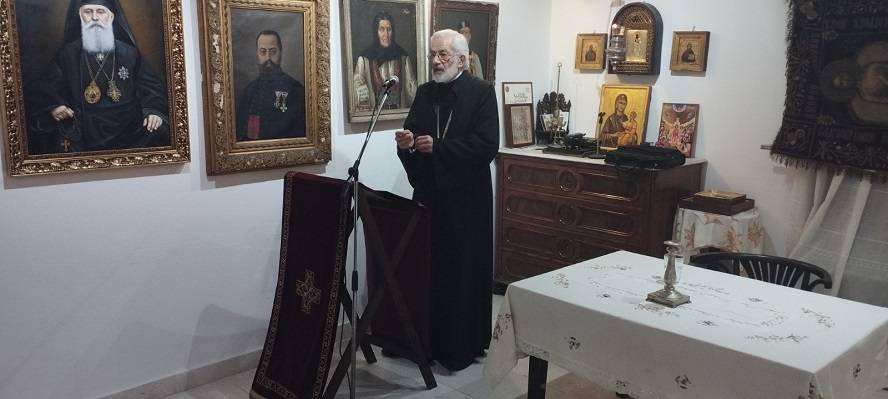
Father Miloš Vesin: “Selfishness is the Ramp to Forgiveness; Christ Incarnate is Heaven’s Forgiveness to Earth”
Last night, a lecture by Dr. Miloš Vesin, “Psychology of Forgiveness/Unforgiveness,” was held in the Treasury of the Serbian Orthodox Church in Kotor.
The distinguished lecturer at the Orthodox Theological Faculty “Saint Sava” in Libertyville, a retired parish priest from Chicago and a well-known pastor, who graduated in music studies, holds a doctorate in theology and a doctorate in psychology, and those present at the lecture were greeted by the hierarchal vicar of Kotor and Tivat, Archpriest-Staurophorus Nemanja Krivokapić, thanking the guest for organizing another interesting and above all useful lecture aimed at modern man burdened with various temptations.
“Many may have been surprised when they saw the title of our joint reflection, because forgiveness, or rather unforgiveness, is something that affects us all to a greater or lesser extent. The topic itself, “Psychology of Forgiveness/Unforgiveness”, as strange as it may seem at first glance, is on the other hand more than justified, because everything in this life has its own psychology, if psychology is viewed as the science of the soul. Unfortunately, through its many schools of contemporary psychology, it is often more like statistics than the science of the soul.
The very word forgiveness and the entire process that a person must go through in order to forgive someone, or not to forgive, cannot but involve the human soul,” says Fr. Miloš.
He continues by stating that forgiveness is necessary for a person to make things easier for him – “forgiveness should be an indispensable part of his spiritual hygiene”.
Indispensable in this story, he continued, is the creator of analytical psychology, Carl Gustav Jung, who initially agreed very much with Freud (they collaborated closely from 1912 to 1917). The split followed, not over the issue of his position on human sexuality, nor on his relationship to the unconscious, but over his relationship to religion.
“While on the one hand Freud was completely influenced by Marx, Jung (the son of a Protestant pastor from Switzerland), although open to many directions in life, had that Protestant discipline. Jung argued that religion is not subject to the classical way of scientific observation because it goes beyond science itself. Not as something that is against science, but as something that is in a domain above science,” said Fr. Miloš.
This, he emphasized, is very important because in the Holy Scriptures we encounter forgiveness for the first time, through a negative form of forgiveness, that is, through the absence of a request for forgiveness.
“It was already in the first human transgression of our forefather Adam, when, having tasted the fruit, he did what more or less each of us does today, when he does something he should not have done. Then we see how much the Old Testament, the entire Holy Scripture, is a contemporary and modern book,” said Fr. Miloš.
He reminds us that when Adam sinned, he first felt fear, then hid as a consequence of fear, and then, as we all do in such situations, tried to find justification. If there is none, then we try to shift the blame onto someone else.
"He felt, indeed, shame, and when the Lord, not to scold him, but by asking him, "Adam, where are you," tried to renew the dialogue of love, Adam said, "I heard your voice and hid myself because I was naked" (as if he had not been naked before). And God asked him, "Who told you that you were naked, that you did not eat from the Tree of the Knowledge of Good and Evil?" Here we come to a brilliant and so necessary definition of nakedness today. Nakedness is not when a person undresses physically, but the essence of nakedness is when a person remains naked in relation to his relationship with God." Saint Symeon the New Theologian, interpreting this very passage from the Old Testament, says, "Adam was naked because he had dressed himself in corruption of his own free will. He took off the incorruption that God had clothed him with and put on the garment of corruption, the garment of mortality.” Adam still does not ask for forgiveness. How do you think history would have continued if Adam had had the courage, the audacity, and had said, “God, I have sinned, I have gone astray, I am sorry, forgive me.” No, he said, “The woman whom You created for me, she persuaded me, and I tasted of that forbidden fruit.” Later, this was passed on to his son Cain, who, when he saw that God had accepted his brother’s sacrifice and not his, felt jealousy and envy at the same time,” recalled Fr. Miloš.
He says that psychologically, Cain is the first obsessive neurotic in human history.
The two cases mentioned, Fr. Miloš said, are the first two cases of the absence of a request for forgiveness.
“Now we skip thousands of years and come to the new Adam, to the Lord Jesus Christ who came out of love,” said Fr. Miloš.
He also recalls the revolutionary texts for the 6th and 7th centuries written at the time by St. Isaac the Syrian, who says: “Even if Adam had not sinned, Christ would have come among us out of love.”
“Because this entire world was created out of love and man, as the crown of creation, was created to be in a constant loving dialogical relationship with God and for people to be in the same kind of relationship with people. That is the goal of what life is,” said Fr. Miloš.
He states that selfishness is the ramp on the way for people not to forgive others, and Christ appears as the visible, bodily, incarnate forgiveness of Heaven towards earth.
“What is His crucifixion if not the triumph of forgiveness? The crucified Christ from the cross, what words does he say? Those were not curses, they were not scolding, they were not “you will see when my father comes”, as you and I, for example, would have reacted. Those were not the words “Father forgive them for they do not know what they do”, said Fr. Miloš.
Speaking about the states of modern man burdened by the states of ego and superego, about a man who does not give in even to his most beloved, he says that in this way the amount of poison in that same man increases.
“You can hate someone as much as you want, you can not forgive him as much as you want and against your will, but that does not destroy him. It destroys your relationship with that person and that is a fact and it destroys you”, continued Fr. Miloš, adding that the frequent occurrence of cancer today does not happen all at once, as is often thought, and that science says that close to 90 percent of all forms of this disease, as well as cardiovascular diseases, are of psychosomatic origin.
He points out that everything is absolutely connected, so as soon as the harmony, the balance between body, soul and spirit is disturbed, the body usually has to suffer.
"The saying "a healthy mind in a healthy body" is very wrong. No, where the spirit is healthy, even if the body is sick, it will bear it more easily and will be able to heal. Because, just as we make ourselves sick, we can also heal ourselves with God's help. Therefore, nothing has such a beneficial effect on a person as forgiveness," emphasized Fr. Miloš, with the words that resentment is the most vicious snake we can nurture in our chests, and that a person who truly loves must always forgive.
Therefore, he says, the most important thing is to forgive and forget.
“Some would say it can’t be like that, but what do we hear at the Liturgy? “Take and eat, this is my body that is prayed for you for the forgiveness of sins,” reminds Fr. Miloš, emphasizing that only through the power of forgiveness can a person get so close to God that when he has shown great love, God forgives him.
Forgiveness, as he indicated, has a therapeutic effect on a mutual level “because you are freed from a burden, but the other person is also freed from the same burden.”
“The power of forgiveness is within our reach, as is going and saying to someone “I’m sorry, forgive me,” or giving forgiveness when it seems impossible to you,” said Fr. Miloš, reading at the end of the lecture an unusual example of forgiveness in advance, through messages in a letter from two boys from Krajina, left for those who will come to live there. The boys G. and M. had 24 hours with their family to flee their homes due to the infamous “Storm”, but they left him so that that someone could continue to live there normally (if possible). Everything is described in a book that is due to be published soon.
“In the end, it should be said that every forgiveness is contrary to logic, but it is in accordance with the Logos. Only the Logos, only the incarnate Son of God is able to overcome logic. Logic is the way we humans are taught to think according to the laws left to us by Socrates, Plato, Aristotle… But there is something stronger than that, and that is the Logos. I don’t know how many religious education classes these two boys had, but they hit the mark. They left with great pain, with great suffering, with a great burden on their backs, but their souls were relieved, because they left that room of theirs, as they called it the “throne room” of their childhood, to be used to the best advantage and enjoyed by someone who might be expelled from one of their rooms, from one of their “throne rooms”, someone towards whom they neither wanted nor could, but did not allow themselves to feel hatred. That is the key moment, and therefore every time from now on, whether in church or in your own home, when you read the words of the Lord’s Prayer and come to that part “And forgive us our debts”, remember whether you have forgiven, whether you have asked for forgiveness”, said Fr. Miloš, concluding that the heart is the “throne room” of each of us, of our lives, of which we only have one, with the aim of recognizing our meaning in it.
PHOTOS
RELATED ARTICLES
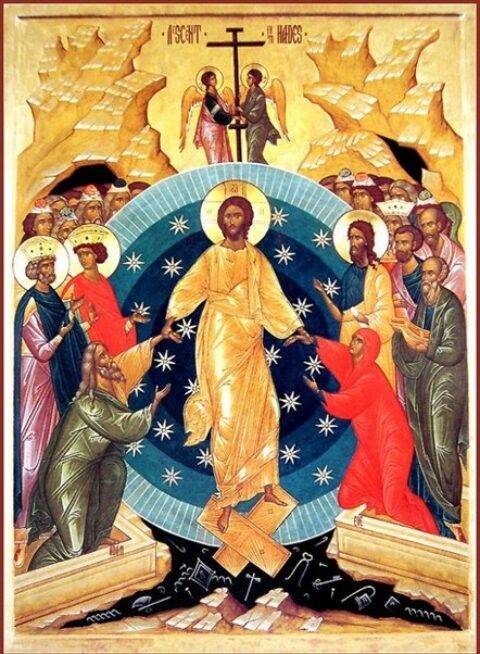
Calendar for April 21 Easter Monday
Early on Sunday, before dawn, Mary Magdalene, Mary the mother of James, Salome...
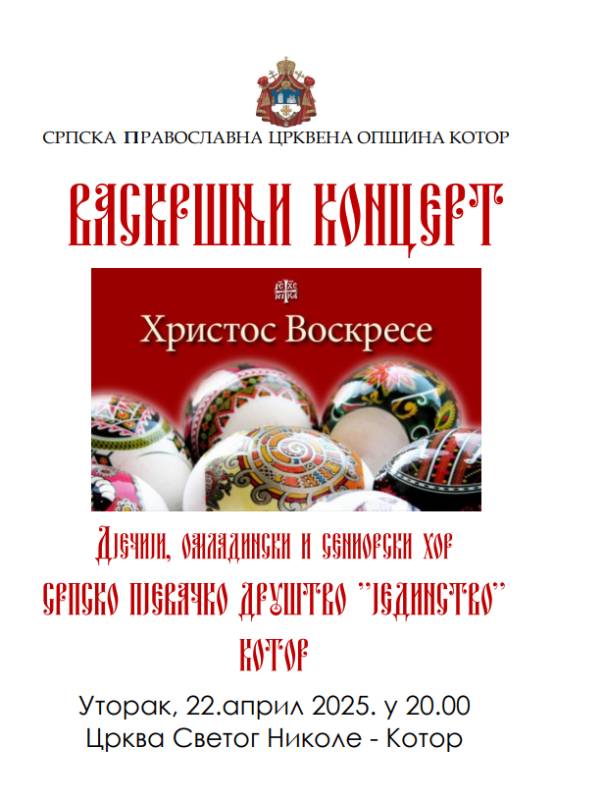
EASTER CONCERT OF THE SPD JEDINSTVO CHOIR
The Easter concert of the children's, youth and senior choirs of the...
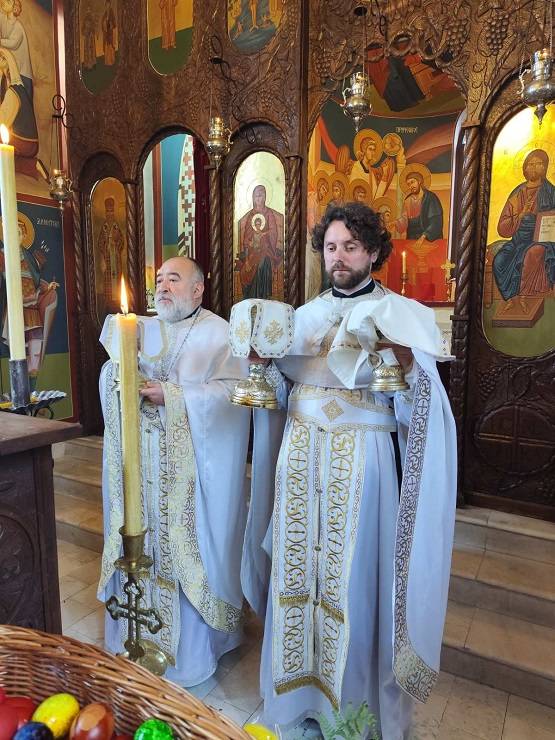
EASTER CELEBRATED LITURGICALLY IN THE CHURCH OF ST. VASILIJE OSTROŠKI IN DOBROTA
The Resurrection of Christ was celebrated liturgically today in the Church of...


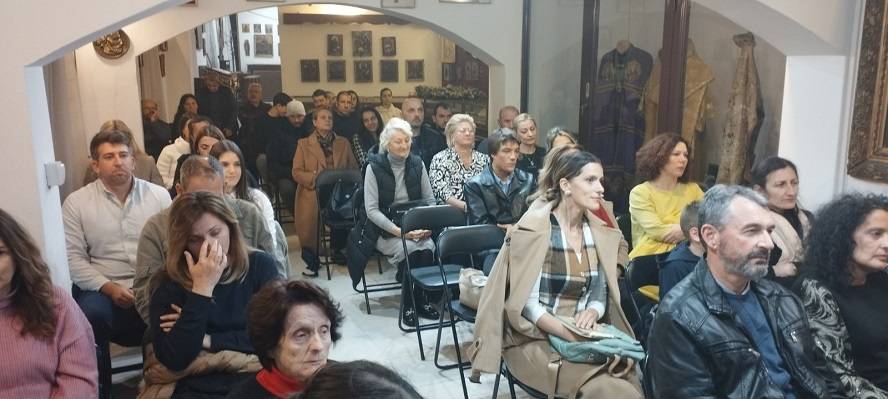

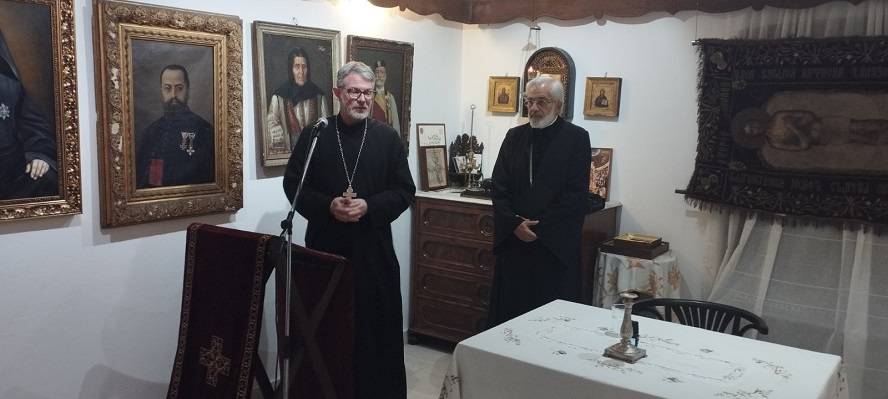
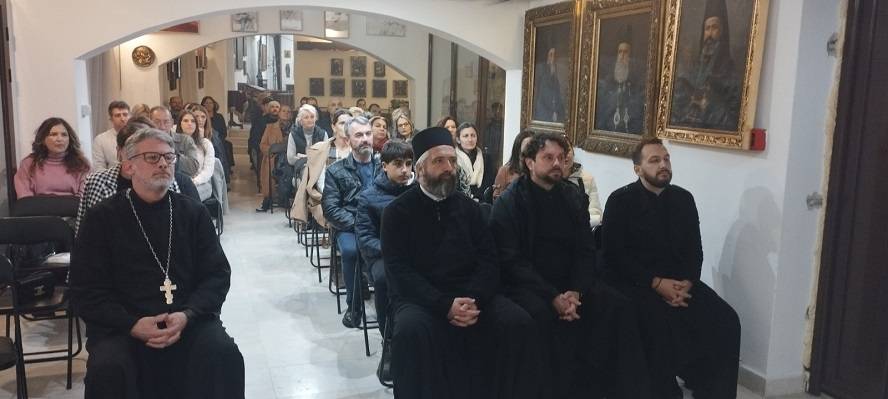
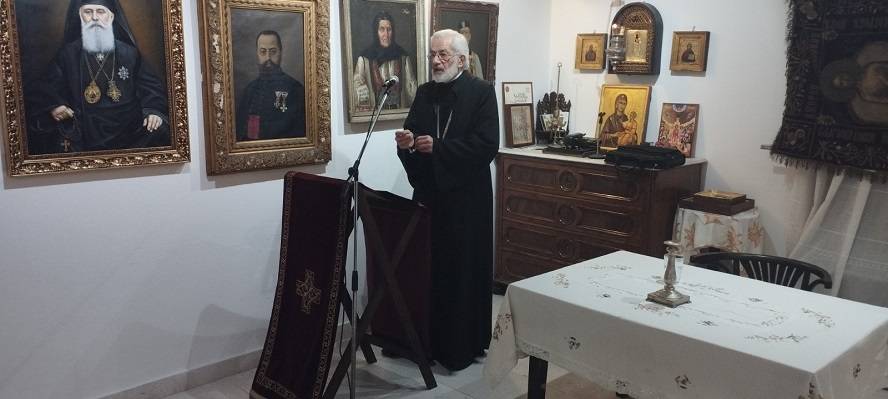
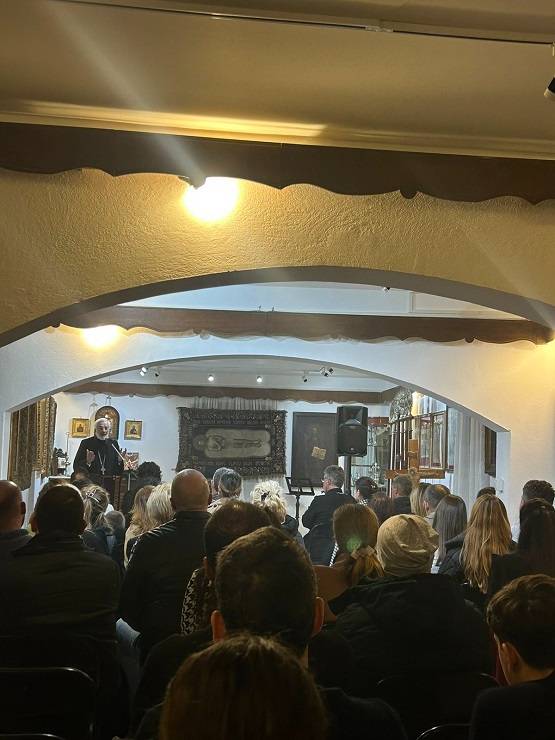
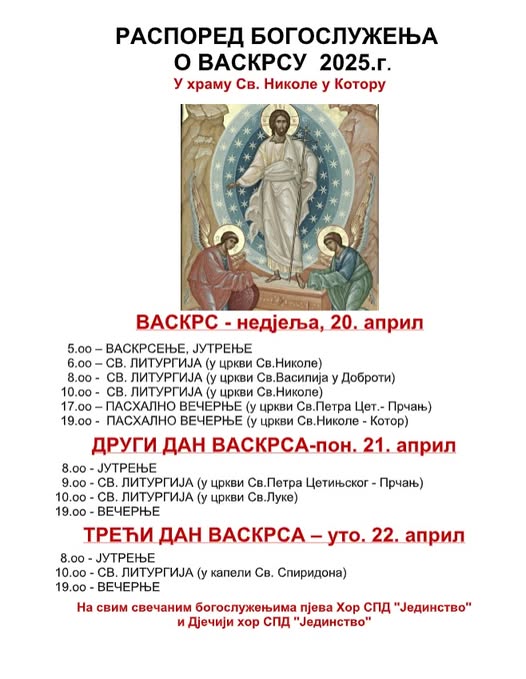
.png)